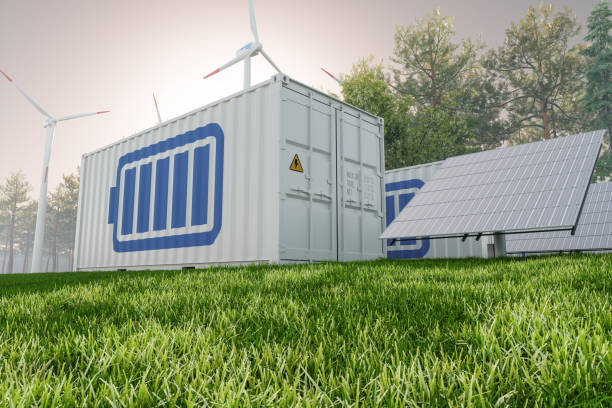
There is no doubt that technology has come a long way in the past few decades and will continue to advance at an even faster pace in the future. Some of the technologies that are likely to shape the future include:
1. Artificial intelligence (AI) and machine learning: AI is already being used in a variety of applications, from self-driving cars to virtual assistants. As AI becomes more advanced, it is likely to be used in even more fields, such as healthcare, education, and finance.

2. Virtual and augmented reality: Virtual reality (VR) and augmented reality (AR) technology has the potential to revolutionize the way we interact with the world. VR can be used for gaming, training, and even therapy, while AR can be used to enhance our everyday experiences, such as shopping or learning.

3. Blockchain: Blockchain is a decentralized, secure, and transparent way of storing and transmitting data. It has the potential to change the way we do business and interact with each other, by eliminating the need for intermediaries and increasing trust and efficiency.
4. Internet of Things (IoT): The IoT refers to the connection of everyday objects to the internet, allowing them to send and receive data. This technology has the potential to make our lives more convenient and efficient, by allowing us to control and monitor devices remotely.
5. 5G and beyond: 5G is the next generation of mobile network technology, offering faster speeds and lower latency than previous generations. It has the potential to enable new technologies such as autonomous vehicles, smart cities, and virtual and augmented reality.
6. Quantum computing: Quantum computers use the principles of quantum physics to perform calculations that are much faster and more powerful than those of classical computers. This technology has the potential to solve problems that are currently impossible for classical computers to tackle, such as finding the prime factors of large numbers.
7. Gene editing: Gene editing technologies, such as CRISPR, allow scientists to make precise changes to an organism's DNA, with the potential to cure genetic diseases, improve crop yields, and even extend human lifespan.

8. Renewable energy: Renewable energy technologies, such as solar and wind power, are becoming increasingly important as the world seeks to transition away from fossil fuels and combat climate change. These technologies have the potential to provide clean, reliable, and cost-effective energy to people around the world.
9. Biomedical implants: Biomedical implants are devices that are implanted in the body to restore function or treat a medical condition. Examples include pacemakers, cochlear implants, and artificial joints. As technology advances, it is likely that we will see more sophisticated and specialized implants that can improve people's quality of life in a variety of ways.
10. Space exploration: Advances in space exploration technology are enabling humans to explore further into the cosmos than ever before. This includes the development of new spacecraft, launch vehicles, and space habitats that can sustain human life for extended periods of time.

11. Robotics: Robotics technology is advancing rapidly, with the development of robots that can perform a wide range of tasks, from manufacturing and assembly to healthcare and agriculture. As robots become more advanced and sophisticated, it is likely that they will play an increasingly important role in various industries and sectors.

12. Energy storage: As renewable energy sources become more widespread, efficient and reliable energy storage technologies will become increasingly important. This includes the development of advanced batteries, fuel cells, and other technologies that can store energy for use when it is needed.

13. Biotechnology: Biotechnology is the use of living organisms or their products to create or modify products or processes. This includes the use of microbes to produce biofuels, the development of genetically modified crops, and the use of stem cells for medical treatments. As biotechnology advances, it is likely to have a significant impact on a wide range of fields.

14. Autonomous vehicles: Autonomous vehicles, such as self-driving cars, are likely to play a major role in the future of transportation. These vehicles have the potential to reduce accidents and congestion, while increasing efficiency and accessibility. As the technology continues to advance, it is likely that we will see more widespread adoption of autonomous vehicles in the coming years.

15. Smart cities: Smart cities are urban areas that use technology and data to improve the quality of life for their residents. This includes the use of sensors, IoT devices, and other technologies to collect and analyze data on everything from traffic and waste management to energy use and public safety. Smart cities have the potential to be more efficient, sustainable, and livable, and are likely to become more common in the coming years.

16. 3D printing: 3D printing, also known as additive manufacturing, is the process of creating a physical object by laying down successive layers of material. This technology has the potential to revolutionize manufacturing, by allowing companies to produce customized products on demand and reduce the need for large-scale production facilities.
17. Drones: Drones, or unmanned aerial vehicles, are becoming increasingly common and have a wide range of potential uses, from delivery and surveillance to agriculture and disaster response. As drone technology advances, it is likely that we will see even more innovative and practical applications for these devices.

18. Wearable Technology: Wearable technology refers to devices that can be worn on the body, such as smartwatches, fitness trackers, and augmented reality glasses. These devices have the potential to enhance our everyday lives, by providing us with information, entertainment, and other services at a glance. As wearable technology becomes more advanced and widespread, it is likely to play an increasingly important role in our lives.

19. Smart grids: Smart grids are advanced electricity networks that use sensors, automation, and other technologies to improve the reliability, efficiency, and sustainability of the electricity supply. Smart grids have the potential to reduce energy waste, improve response times to outages, and integrate renewable energy sources into the grid.
20. Biomimicry: Biomimicry is the study of nature and the use of its designs, processes, and systems as inspiration for the development of new technologies. This includes the development of materials, structures, and systems that mimic the properties of natural materials and processes, such as the self-cleaning properties of lotus leaves or the light-absorbing properties of butterfly wings.

21. Advanced nuclear energy: Advanced nuclear energy technologies, such as small modular reactors, have the potential to provide clean, reliable, and scalable energy without the carbon emissions of fossil fuels. These technologies are still in the development stage, but have the potential to significantly contribute to the global energy mix in the future.

22. Human enhancement: Human enhancement technologies are designed to improve the physical or mental abilities of humans beyond their natural limits. Examples include prosthetics, brain-computer interfaces, and gene editing. As these technologies advance, they have the potential to significantly improve the quality of life for people with disabilities or impairments, as well as enhance the capabilities of able-bodied individuals.

23. Smart homes: Smart home technologies are designed to improve the efficiency, convenience, and security of our living spaces. This includes the use of sensors, automation, and other technologies to control and monitor appliances, lighting, and other systems in the home. Smart homes have the potential to reduce energy use, improve comfort, and make our lives more convenient.

24. Advanced sensors: Advanced sensors are devices that can measure and detect a wide range of physical, chemical, and biological properties. These sensors have the potential to revolutionize a wide range of fields, from healthcare and agriculture to transportation and environmental monitoring.

25. Advanced batteries: Advanced batteries are designed to store more energy in a smaller and lighter package, with longer lifespans and faster charging times than traditional batteries. These batteries have the potential to enable new technologies and applications, such as electric vehicles and portable electronics.
26. Advanced materials: The development of new materials, such as graphene and other 2D materials, has the potential to revolutionize a wide range of industries, from electronics and energy to healthcare and transportation. These materials are stronger, lighter, and more conductive than traditional materials, and have the potential to enable new technologies and applications.

27. Advanced solar cells: Advanced solar cells are designed to convert more of the sun's energy into electricity, with higher efficiency and durability than traditional solar cells. These cells have the potential to significantly increase the adoption of solar energy and reduce the cost of electricity from this source.
28. Advanced manufacturing: Advanced manufacturing technologies, such as 3D printing and robotics, have the potential to revolutionize the way we produce goods and materials. These technologies can enable the production of customized products on demand, reduce waste, and improve efficiency and productivity.
29. Energy harvesting: Energy harvesting technologies capture and convert ambient energy from the environment into usable electricity. Examples include solar panels, wind turbines, and piezoelectric generators that convert mechanical energy into electricity. As these technologies become more efficient and widespread, they have the potential to significantly reduce our reliance on traditional energy sources.

30. Advanced medical devices: Advanced medical devices are designed to improve the diagnosis, treatment, and monitoring of medical conditions. These devices include everything from wearable health monitors to artificial organs and implantable drug delivery systems. As these technologies advance, they have the potential to significantly improve the quality of healthcare and extend human lifespan.

Overall, the future is likely to be shaped by a wide range of technologies, each with the potential to significantly impact and improve our lives in a variety of ways. As these technologies continue to evolve and become more widely adopted, they have the potential to transform the way we live, work, and interact with the world around us.
 Holidays
Holidays  Girl's Behavior
Girl's Behavior  Guy's Behavior
Guy's Behavior  Flirting
Flirting  Dating
Dating  Relationships
Relationships  Fashion & Beauty
Fashion & Beauty  Health & Fitness
Health & Fitness  Marriage & Weddings
Marriage & Weddings  Shopping & Gifts
Shopping & Gifts  Technology & Internet
Technology & Internet  Break Up & Divorce
Break Up & Divorce  Education & Career
Education & Career  Entertainment & Arts
Entertainment & Arts  Family & Friends
Family & Friends  Food & Beverage
Food & Beverage  Hobbies & Leisure
Hobbies & Leisure  Other
Other  Religion & Spirituality
Religion & Spirituality  Society & Politics
Society & Politics  Sports
Sports  Travel
Travel  Trending & News
Trending & News
Most Helpful Opinions